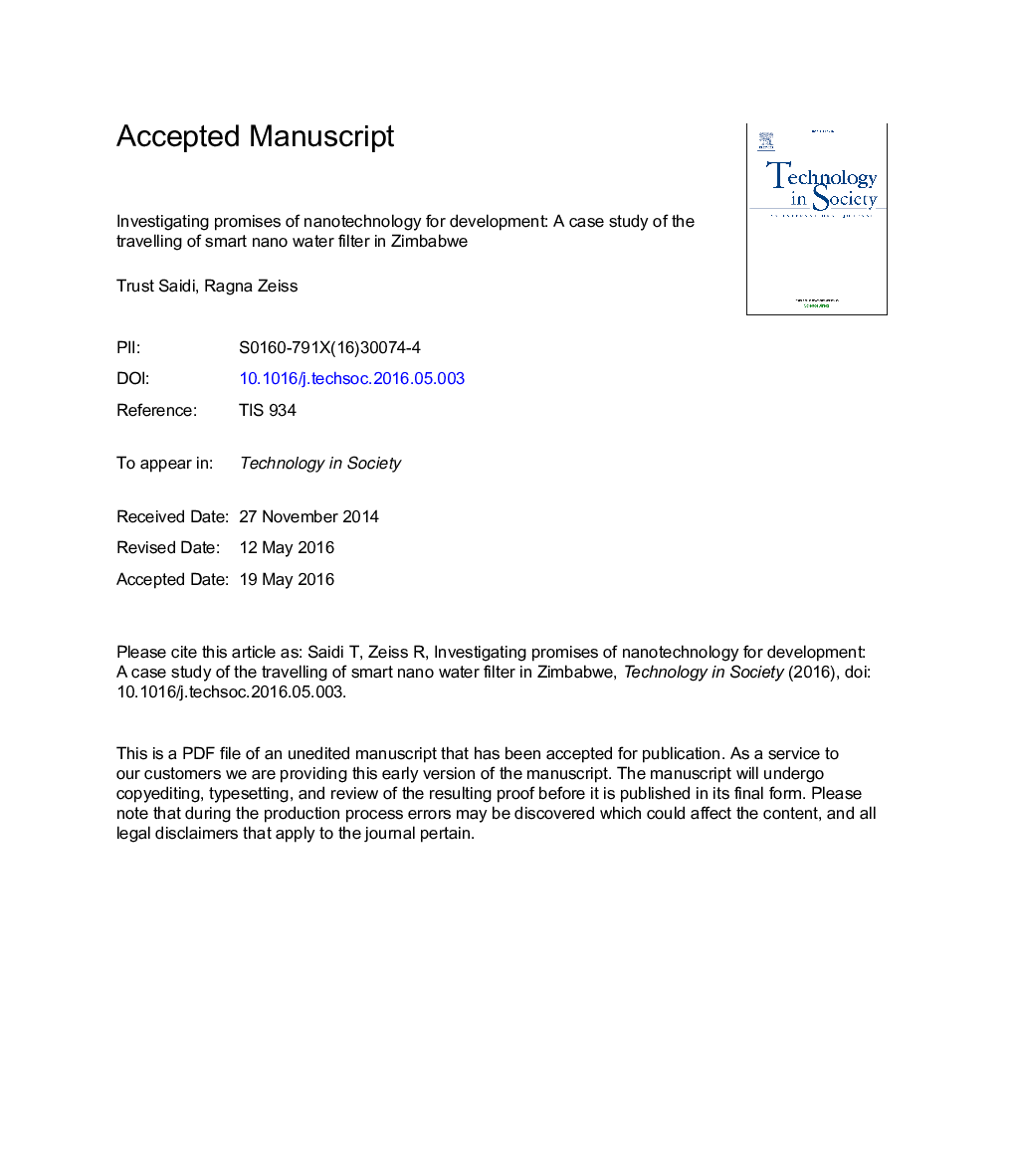| Article ID | Journal | Published Year | Pages | File Type |
|---|---|---|---|---|
| 6851555 | Technology in Society | 2016 | 30 Pages |
Abstract
Using the case of a smart nano water filter that was developed to treat water in Zimbabwe, this article investigates how the filter developed and travelled within a development context and how this relates to promises of nanotechnology for development. The case study is set in a low-resource environment to demonstrate empirically that how and whether or not nanotechnology products are solutions to problems in developing contexts is not a feature of the technology itself, but depends on the social and cultural contexts in which the developers and users live and work. The paper draws on the Social Construction of Technology approach as developed by Pinch and Bijker [1] to show that the processes of technological development involve considerable openness and social contestation over the design, character and meaning of the technology. The case highlights that the filter, in its local contexts of use, constitutes, for different people a solution to the problem of lack of access to clean water or a source of conflict. As the filter's design and context of use changed in unexpected ways even within a national context, we assert that that the situation is even more complicated when technologies travel internationally, such as from the global North to the global South. Although nanotechnology is often capital intensive, this case illustrates that potentially promising nanotechnology products can be developed within a national context in a developing country in a low-cost manner with help of local knowledge and in the absence or outside of large regulatory schemes. We argue that portraying nanotechnology as a solution for development issues without considering the context of use may be helpful for the development of nanotechnology, but does not guarantee the use of nanotechnology for development issues.
Related Topics
Social Sciences and Humanities
Business, Management and Accounting
Business and International Management
Authors
Trust Saidi, Ragna Zeiss,
